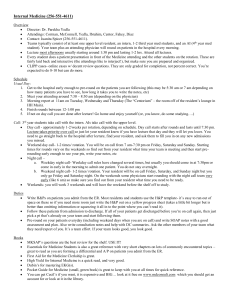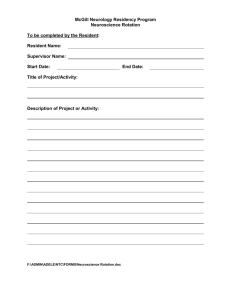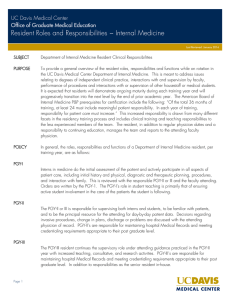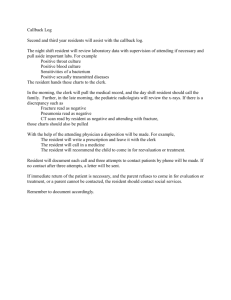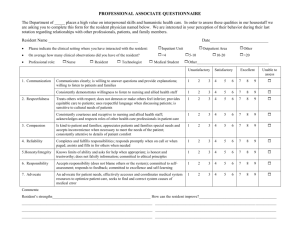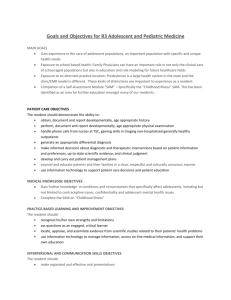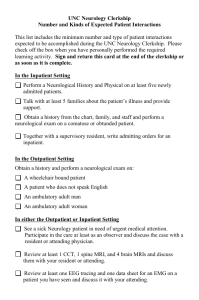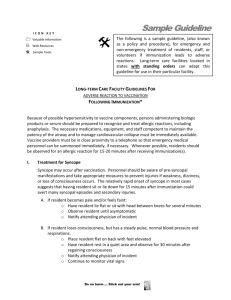Cabarrus Family Medicine Residency
advertisement
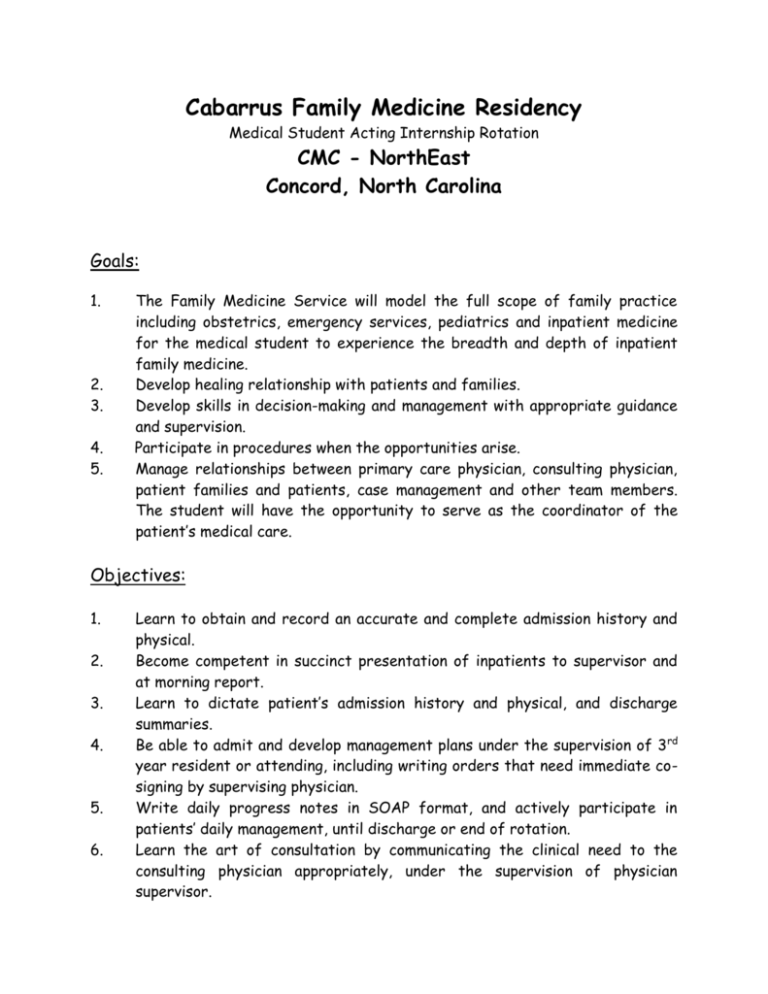
Cabarrus Family Medicine Residency Medical Student Acting Internship Rotation CMC - NorthEast Concord, North Carolina Goals: 1. 2. 3. 4. 5. The Family Medicine Service will model the full scope of family practice including obstetrics, emergency services, pediatrics and inpatient medicine for the medical student to experience the breadth and depth of inpatient family medicine. Develop healing relationship with patients and families. Develop skills in decision-making and management with appropriate guidance and supervision. Participate in procedures when the opportunities arise. Manage relationships between primary care physician, consulting physician, patient families and patients, case management and other team members. The student will have the opportunity to serve as the coordinator of the patient’s medical care. Objectives: 1. 2. 3. 4. 5. 6. Learn to obtain and record an accurate and complete admission history and physical. Become competent in succinct presentation of inpatients to supervisor and at morning report. Learn to dictate patient’s admission history and physical, and discharge summaries. Be able to admit and develop management plans under the supervision of 3 rd year resident or attending, including writing orders that need immediate cosigning by supervising physician. Write daily progress notes in SOAP format, and actively participate in patients’ daily management, until discharge or end of rotation. Learn the art of consultation by communicating the clinical need to the consulting physician appropriately, under the supervision of physician supervisor. Organization for Acting Interns on Family Medicine Service Students will receive an orientation email from GME coordinator with schedules and directions on where and when to start the rotation. Acting interns will participate in rounds alongside the residents: Morning report begins at 7 am and evening checkout at 6 pm Acting interns will be responsible for a minimum 2 patients, working up to 4 They will be expected to perform and dictate H&P’s and discharge and they will write daily progress notes AI’s should write orders but they must be immediately co-signed by the resident or attending. AI’s here for 4 weeks will take night float on one week M-Thurs and have Friday off). They will also round on one weekend (8a-6p) with the weekend team. AI’s here for 2 weeks will do a weekend of night float and have the following Monday off. The supervisory resident will be responsible for assigning patients to the AI. If the census permits, the patients can be assigned to the AI with attending following with them. If patients need to be shared, they should be ones being followed either by the supervisory resident or an upper level resident. AI’s should rotate with the other residents for new admissions AI’s will be expected to present their own patients on rounds. If they are sharing patients then they can negotiate with the resident on which patients to present. Strategies: For the first few days of the rotation until the student is familiar with the hospital, the supervisory resident should help them find the floor where their first patient is located. The student should then be given 45 min-1 hr to assess the patient, read up on the patient’s condition and develop a management plan. The student should then contact the attending or resident following the patient to go over the plan and get together to write orders. The student can then ask that attending or resident (or call supervisory resident) to help them find their next patient’s location and repeat the above process. In the afternoon, the student should follow up on any testing or check status of their assigned patients and participate in new admissions along with the residents on service. The student should utilize the procedure mannequins and be encouraged to read on their patients’ conditions during any down time. During the night float nights, the resident should discuss management of patient phone calls and floor calls with the student. During night float, the upper level resident will assign new admissions to the AI along with the intern. Depending on the acuity, the AI may be able to do the initial assessment and present to the upper level. Any significantly ill or unstable patient should be evaluated together. D:\533570224.doc 2

